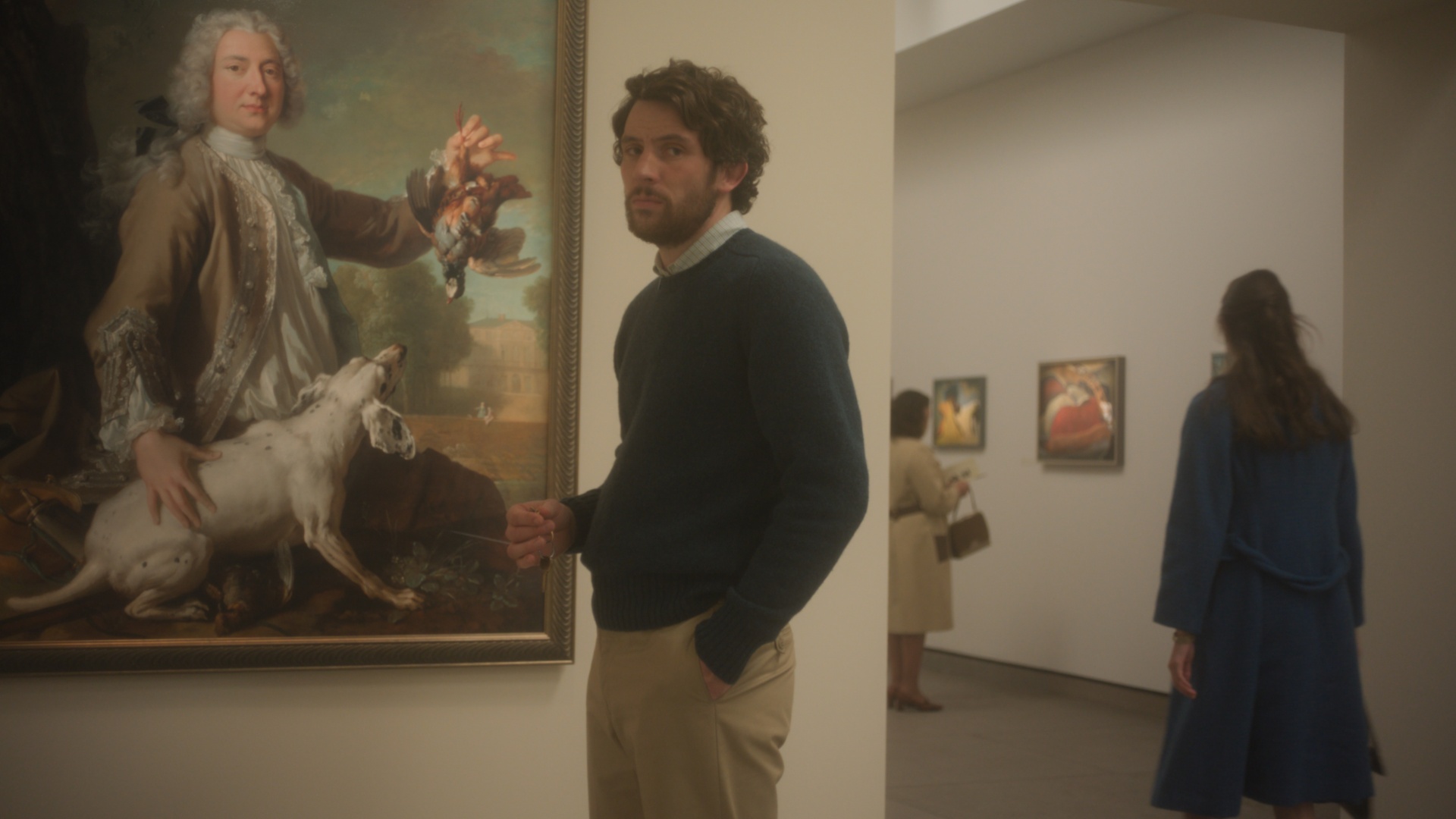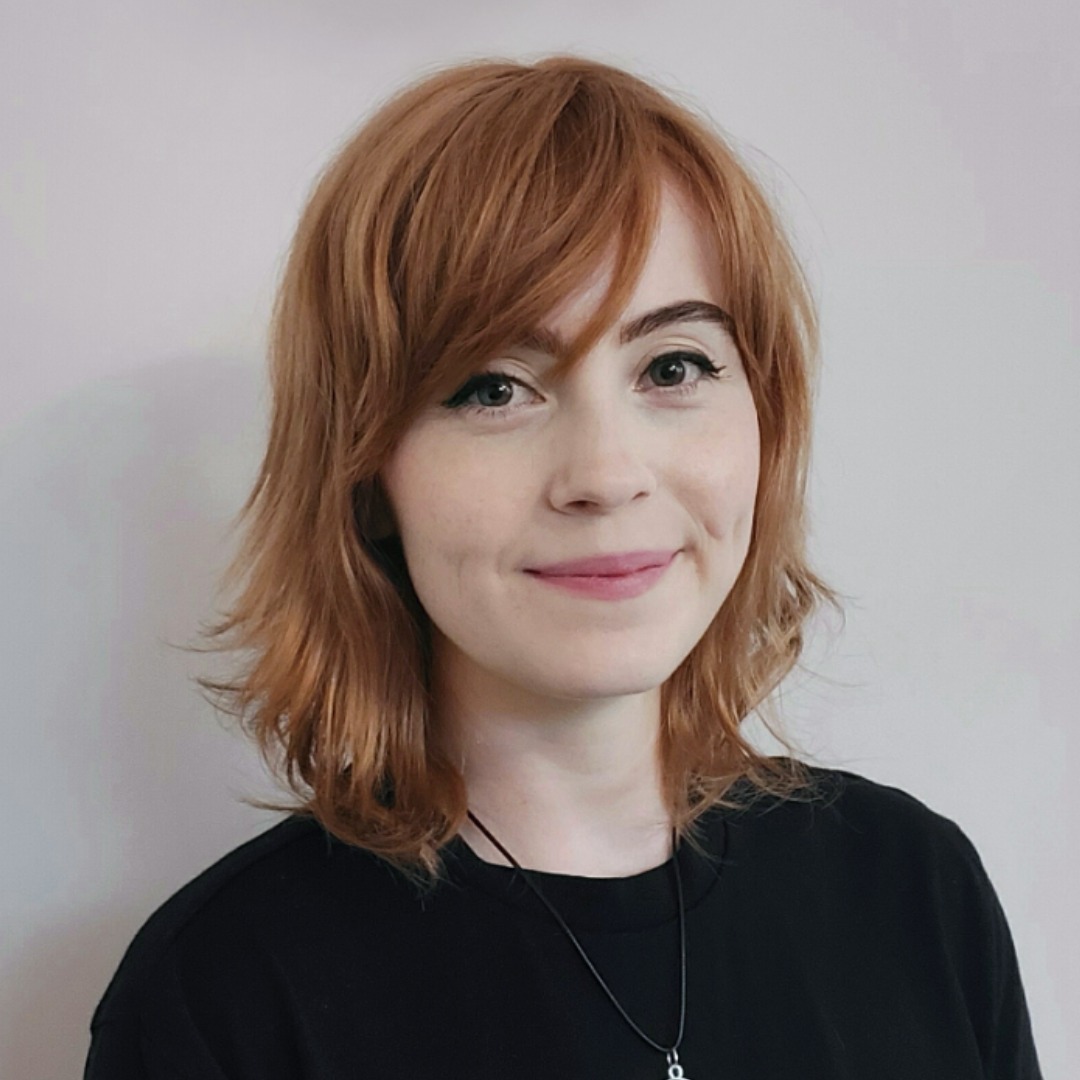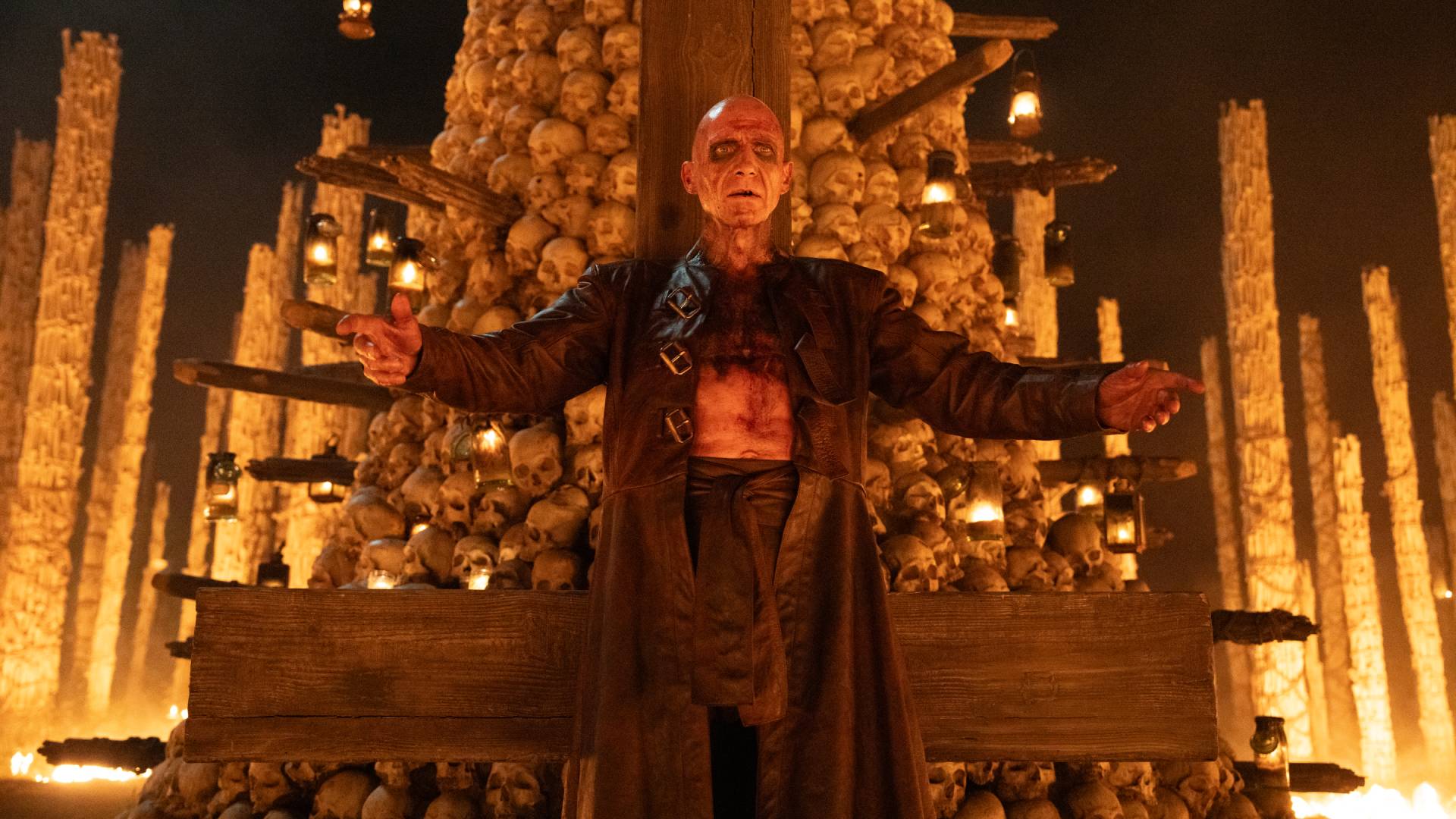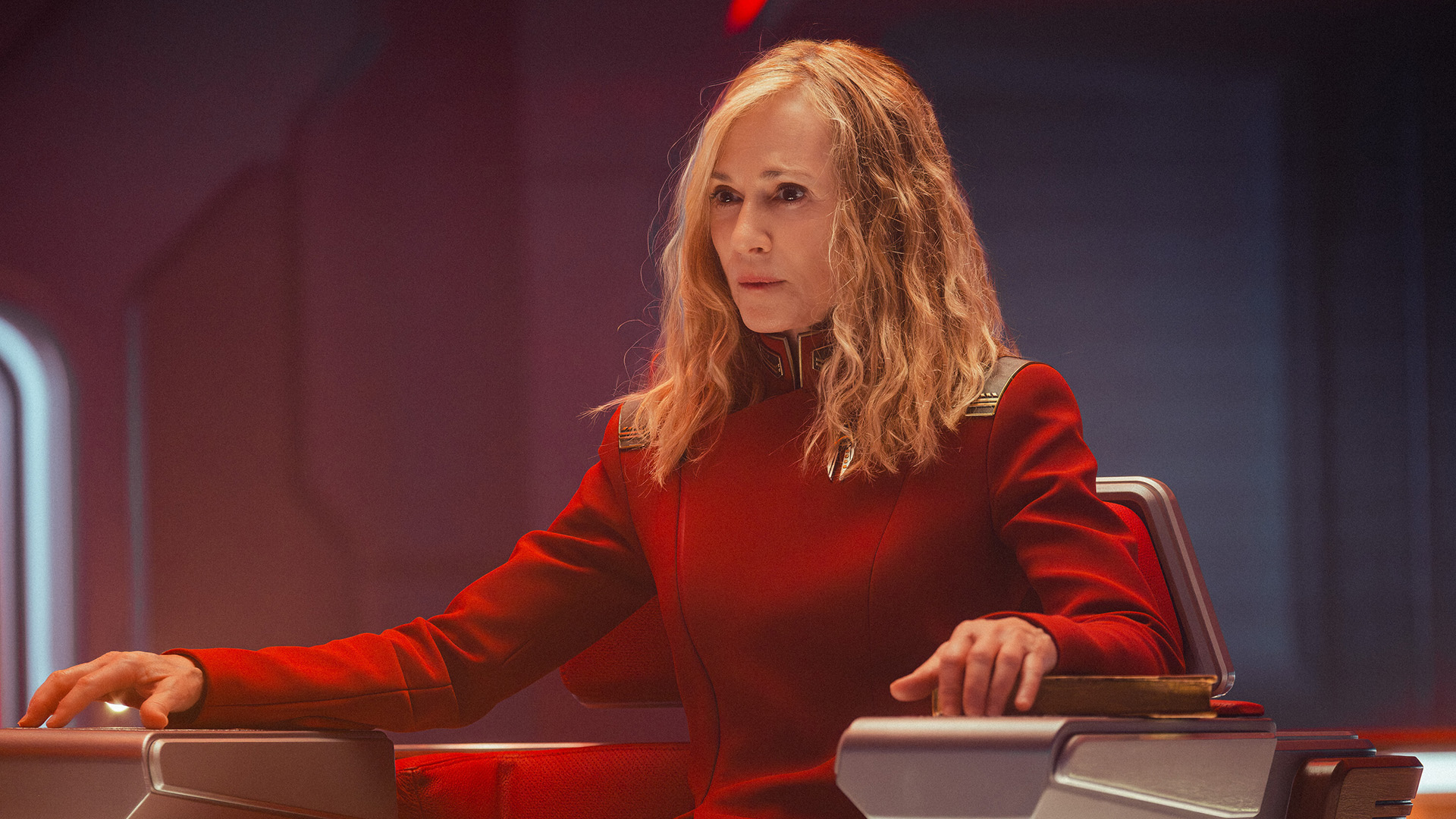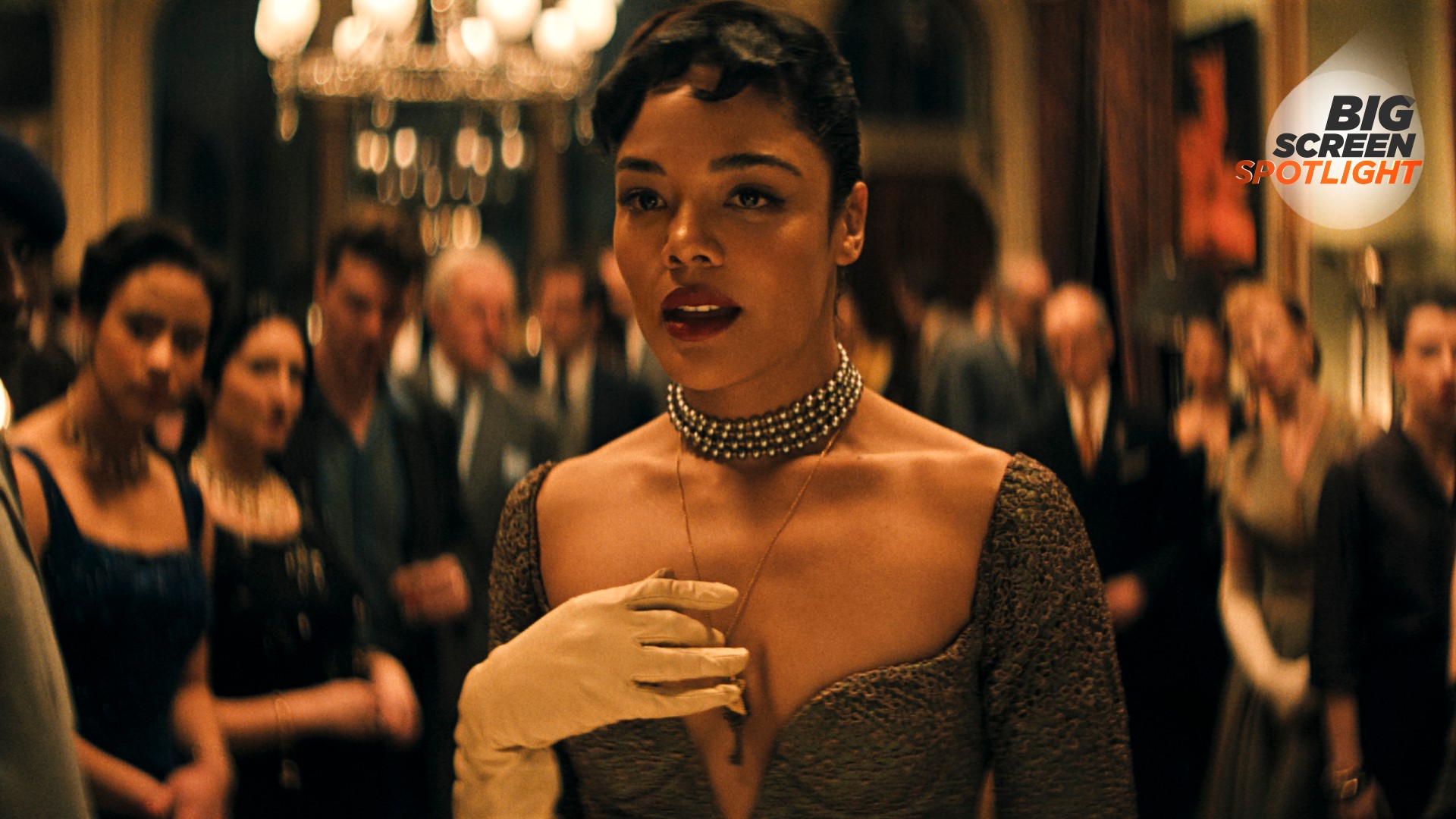
"I've heard so much about you, Mrs. Tesman," a detective admits to the eponymous character in the very first scene of Nia DaCosta's new sumptuous, feminist period drama. "Hedda is fine," she replies with a smile, though it's more of a statement than a friendly suggestion. Later in the movie, someone from her past refers to Hedda as 'Hedda Gabler', the maiden name she got from her late army-commander father, and she rejects that, too; DaCosta's protagonist isn't interested in being defined by men – and neither is the film itself.
Based on Norwegian playwright Henrik Ibsen's classic work, Hedda swaps Scandinavia in the 1890s for 1950s England, opening on Tessa Thompson's lead and her new husband George Tesman (Tom Bateman) as they prepare to host a housewarming party. Their mansion was a gift of sorts from academic George to Hedda; an attempt to satiate his seemingly insatiable new wife – but tonight's shindig is as much about him schmoozing his peers and securing a high-profile professorship in order to pay off its colossal mortgage as it is Hedda showcasing her lavish p̶r̶i̶s̶o̶n̶ present.
In the source material, George's shot at the teaching job is threatened by Eilert Lovborg, a former colleague of his and Hedda's ex-lover. In DaCosta's take, Eilert is not Eilert, but Eileen, whose arrival at the get-together majorly shifts focus away from George's insecurities and kicks off a fascinating exploration of female desire and ambition. "It changed everything. It challenges George in a different way; it challenges [Nicholas Pinnock's cynical Judge] Brack. It challenges the men, in the sense they have to take these three women seriously," Nina Hoss, who brings Eileen to life, tells GamesRadar+.
Break a leg (and misogynistic stereotype, while you're are it)
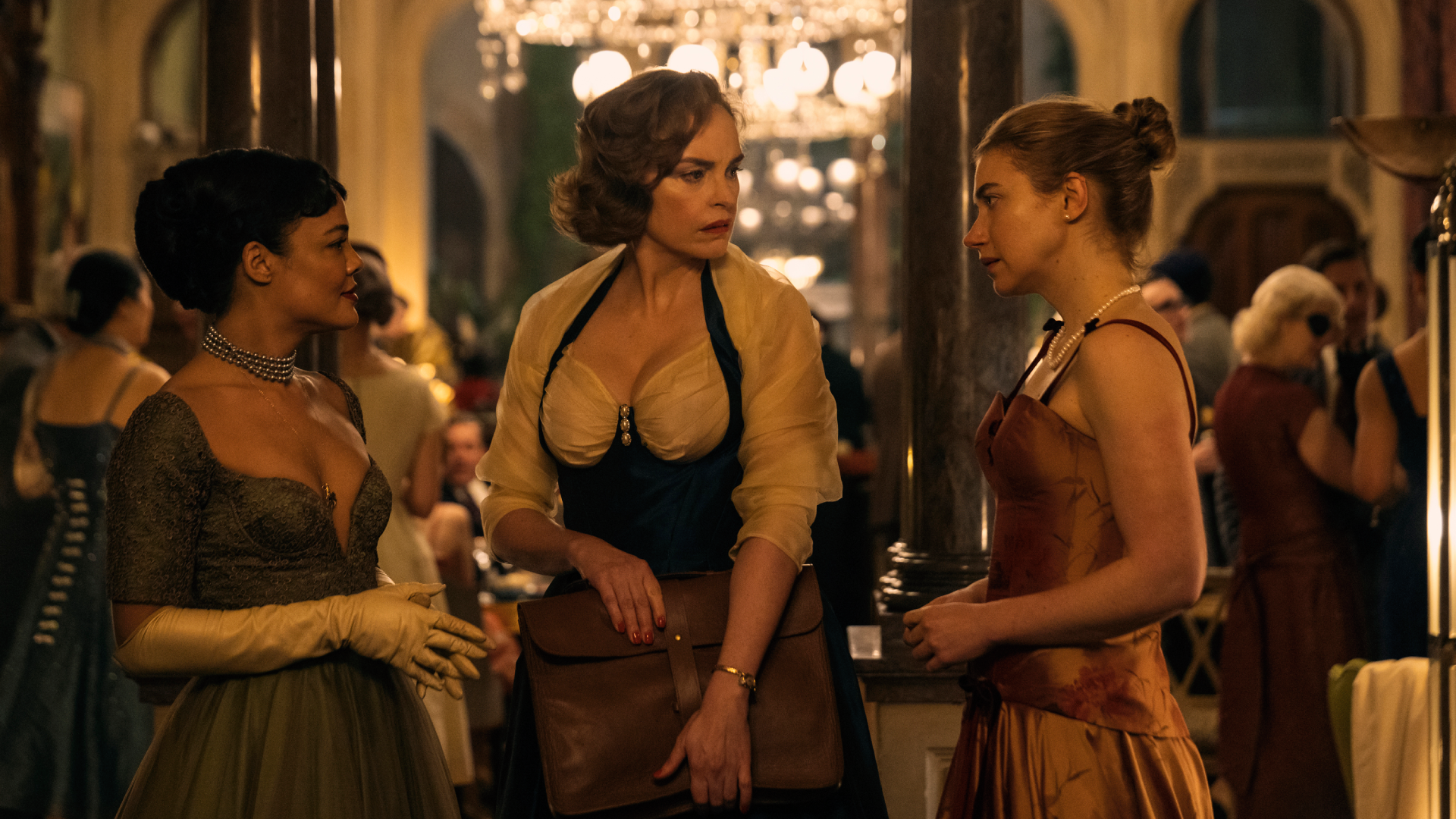
"We do have examples of [the female ego], but probably not enough," says Hoss's co-star Imogen Poots. "We've spent a lot of time ruminating on the male ego. Not to call [Nina's] character a narcissist, but she's sort of 'the female narcissist', or like a female version of all of these male traits. It's not necessarily artist traits or human traits. I think that there's something very, very interesting about all of that. It's still seen as such an ugly word, "ambition", which is a real problem."
Shining a light on the under-the-radar theatrical releases that you need to know about, with a new article every Friday
For Hoss, who played Gabler on stage in Germany in 2010, shooting Hedda felt like being a part of a theater troupe. All of the actors tended to stay on set and just make sure they were out of frame, rather than going back to their individual trailers between takes. To say Hedda is a menace to Eileen throughout the movie's runtime is an understatement as she encourages the recovering alcoholic to have a drink or hides her sacred manuscript, but the vibes off-camera couldn't have been more different.
"Whenever I work with women, it's always an amazing collaboration," says Hoss. "And that doesn't mean I like one more than the other, you know? We're all human beings with flaws and preferences or whatever, but when you work together as women, there's this collaborative feeling – not pitting against each other or whatnot. What these three women feel they have to do is the sad bit but how they fight their way through and how they try to come into their own is, I hope, interesting to watch."
The invisible women
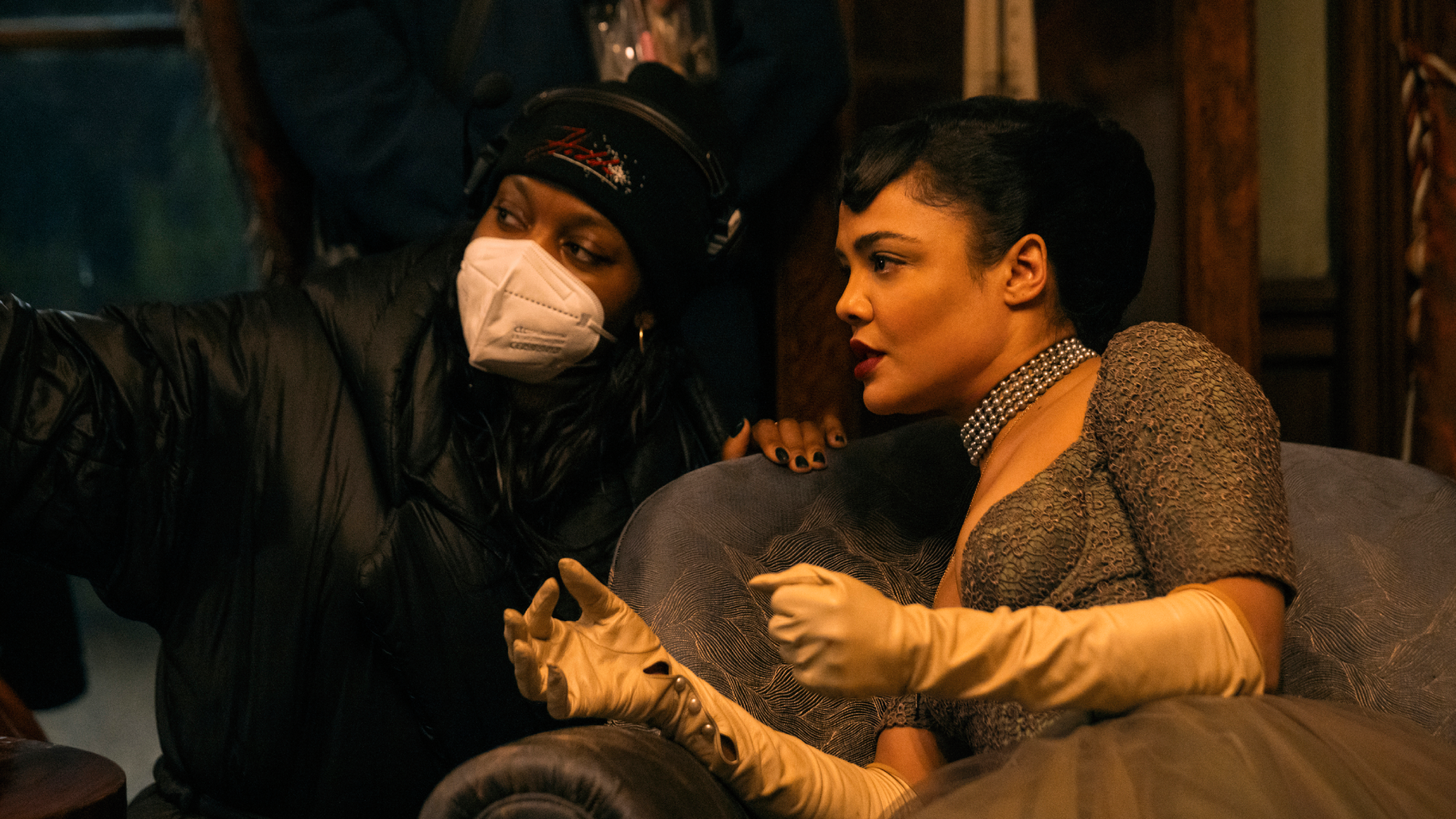
While the film doesn't dwell on its main trio's queerness much, the era in which DaCosta sets Hedda feels important to its central themes – adding depth and unspoken context to Eileen's need to prove herself as a scholar or Thea's decision to leave her husband. Following the Second World War, the UK saw a significant increase in the amount of arrests and prosecutions under the Criminal Law Amendment Act 1885, which deemed gay relationships between men illegal. By 1954, a total of 1,089 men were in prison for homosexual acts, with the average sentence being 37 years. Female sexuality was such a peripheral subject that no one could even imagine that women could be attracted to other women, too. So often in the film, Hedda operates from the shadows, listening to the fallout of her master meddling through the crack of a door or stealing a smooch in a hidden corner – and there's both a playful quality and sadness to her invisibility and the idea that she's not yet realized.
During the fateful evening in which Hedda takes place, hidden frustrations come to the fore; both internal (Hedda beating herself up over not being bold enough to choose Eileen years ago) and external (Eileen urging the "brilliant" Hedda to stop coloring within society's lines and do something more with her life than marrying well). The former, it turns out, is gunning for the same role George is – but first she plans on publishing a book on womens' sexuality with her new faithful paramour Thea (Poots).
"You can really see Thea and Eileen as different parts of Hedda," DaCosta explains. "I thought that was really interesting, because for a character that is quite opaque and doesn't let people in and doesn't understand herself, I thought having these two other women who are, in some ways, parts of Hedda psyche would illuminate her in a way that was really helpful."
Enduring enigma
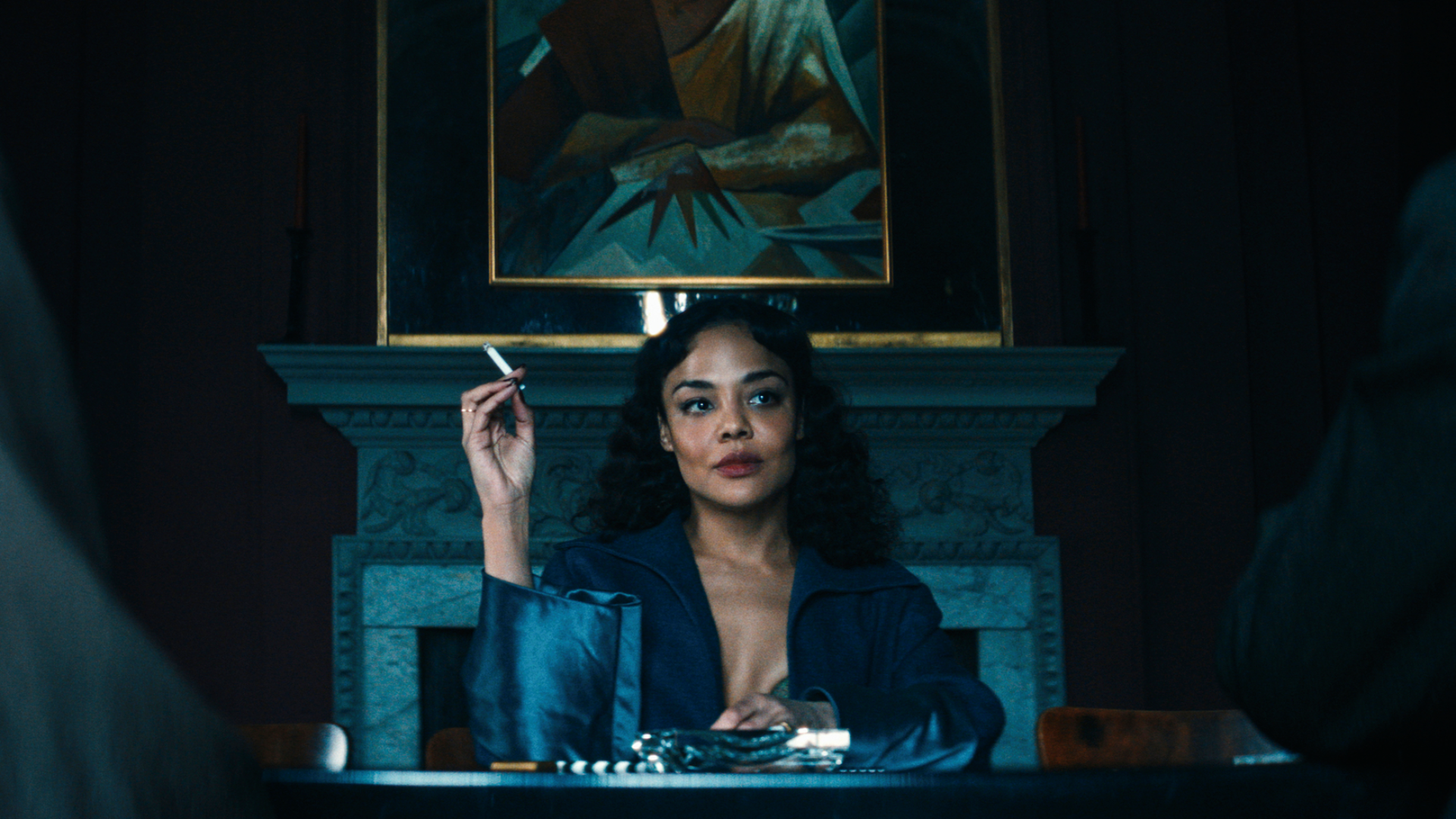
Some actors may be daunted by taking on a role that could rival Shakespeare's Hamlet in terms of how many times it's been interpreted, but Thompson was excited by the challenge of bringing something new to the silverware-adorned table. "One of my favorite things about my job is the amount of research that you can do. There are historic performances of Hedda, and I just decided to watch all those and internalize them. At first, I was like, 'Oh, do I watch the Cate Blanchett? Do I see the Fiona Shaw? We just leaned in. Then Nia met Fiona Shaw and told her, 'Tessa Thompson's gonna play her.' Fiona Shaw said, 'Does she want to have coffee?' And I was like, 'Yeah, I want to have coffee. I want to have a Hedda convention'. You know? Then Nia cast the brilliant Nina Hoss, and I loved talking to her about her approach. It was just so refreshing to embrace it all rather than be intimidated by it.
"I decided not to worry too much about how to make my Hedda individual, because I knew she would be. Anytime you funnel things through your lens, it's different and Nia made so many fundamental changes to the source material that we really were making our own offering," the Marvel star explains. "As soon as I really understood that, I worried less about the pressure. No one's ever played this Hedda before; I am the first and only, and I felt so supported by Nia and our incredible cast."
The fondness and admiration is mutual. "I had a completely new experience with this, and found it very liberating. I forgot completely about what I had done [as Hedda]," Hoss recalls. "I knew this production would be so different and was its own beast from the script, but I was just so curious to see what Tessa does with it, you know? To see everyday the choices she made with the material I knew very well. She's such a strong actress, I completely forgot about it all. I always say, 'No one owns Hedda'. You can't explain her. You have to make up your own mind what her motives are and that's very personal, and why I think she will always stay fascinating."
It's quite the wonder how Hedda is still such a mysterious figure, given the amount of times she's been portrayed – by performers as notable as Ingrid Bergman and the late Maggie Smith. In DaCosta's opinion, the reason she's such an enduring, interesting character is because she's like a mirror forcing audiences to think about their own impulses and less admirable qualities. Plus, she points out, there's a dearth of "bad" women on the big screen these days. "It's so gendered, right? No one says they don't like Silence of the Lambs because Anthony Hopkins' Hannibal Lecter isn't likeable", argues Thompson. Somewhere (or some-when), Hedda is rolling her eyes and nodding.
Hedda is in theaters now, and will land on Prime Video on October 29. For more on what to watch, check out the rest of our Big Screen Spotlight series.
I am an Entertainment Writer here at GamesRadar+, covering all things TV and film across our Total Film and SFX sections. Elsewhere, my words have been published by the likes of Digital Spy, SciFiNow, PinkNews, FANDOM, Radio Times, and Total Film magazine.
You must confirm your public display name before commenting
Please logout and then login again, you will then be prompted to enter your display name.
